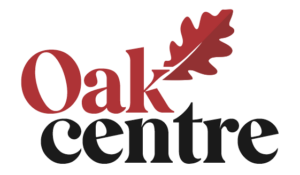This week’s review examines three significant misinformation stories. First, we debunk false claims that the Dangote Refinery had shut down operations. Next, we track outrage over a supposed collapse of the Lafia flyover in Nasarawa, which unravelled under closer scrutiny. Finally, we spotlight the ethical storm around a Peoples Gazette report on the NNPC group managing director, where retraction demands remain unresolved. We also feature the Africa Infodemic Response Alliance (AIRA) as this week’s tool against misinformation.
This week’s top false claims
Dangote Refinery clarifies shutdown rumour
On 9 August, social media was flooded with claims that the Dangote Petroleum Refinery had shut down operations, suspended truck loading, and was on the brink of triggering a nationwide fuel shortage.
The speculation, carried largely by unverified blogs and WhatsApp chains, spread quickly enough to unsettle market watchers.
In a swift response, Anthony Chiejina, the refinery’s group chief branding and communications officer, dismissed the rumour as baseless. Speaking on behalf of management, Chiejina reaffirmed that the facility is “fully operational,” delivering more than 40 million litres of premium motor spirit (PMS) and steady volumes of diesel daily. He explained that the intermittent sale of residual catalytic oil (RCO) is part of normal business operations and that routine maintenance does not disrupt supply.
No evidence has emerged to support claims of a shutdown. As of 15 August, deliveries remain uninterrupted. Chiejina described the rumour as the work of “unscrupulous and unpatriotic individuals” seeking to undermine Nigeria’s energy independence.
Verdict: False. A routine business process was twisted into an industrial hoax with the potential to cause market panic.
Lafia flyover collapse claim unravels under fact-check
Social media lit up in mid-August with dramatic photos and shaky videos claiming to show the spectacular collapse of Nasarawa’s brand-new N10 billion Lafia flyover.
The posts, amplified on X and Facebook, sparked public outrage. Commenters seized on the alleged collapse as a symbol of wasteful spending and poor workmanship, with some demanding investigations into contractors and state officials.
AFP Fact-Check’s investigation quickly punctured the story. The structure itself had never collapsed; rather, a single beam gave way during ongoing construction, causing localised damage but no structural failure.
To complicate matters, some of the most widely shared visuals were not even from Nasarawa. They were recycled from unrelated incidents elsewhere, further fuelling the false perception that the entire bridge had crumbled.
Published on 12 August 2025, AFP’s report confirmed that the flyover remains intact and operational, restoring calm after days of speculation.
Verdict: Misleading. A construction mishap was exaggerated into a full collapse through recycled and mislabelled visuals.
Media ethics spotlight
Retraction demands over NNPC GMD story remain unanswered
The Peoples Gazette report of 2 August alleging that Bayo Ojulari, group managing director of the Nigerian National Petroleum Company Limited (NNPCL), was abducted and coerced into resigning by operatives of the Department of State Services (DSS) and the Economic and Financial Crimes Commission (EFCC) has triggered a high-profile media ethics dispute.
The story also linked the alleged plot to a woman close to the president, drawing widespread attention in the oil and gas sector.
Both agencies reacted swiftly. The DSS issued a 48-hour ultimatum on 5 August for a public retraction, followed by the EFCC on 6 August. Yet, as of 15 August, Peoples Gazette has not amended or removed the story, leaving the matter unresolved.
In a 3 August statement, Bayo Ojulari dismissed the claims as false. He confirmed his resignation was voluntary, following consultations after an oil and gas conference in Kigali. “I was neither arrested nor forced out,” he said, adding that NNPC operations remain uninterrupted.
Ojulari also refuted allegations involving Ola Olukoyede, chairman of the EFCC, Adeola Ajayi, director-general of DSS, and businesswoman Olatimbo Ayinde. He described the report as “fictional” and more suited for a Nollywood thriller than credible journalism.
Media Police position: The unresolved retraction demand highlights how misinformation, when left uncorrected, corrodes both public trust and professional accountability.
Tool of the week
Africa Infodemic Response Alliance (AIRA)
The Africa Infodemic Response Alliance (AIRA), launched by the World Health Organisation Africa regional office, unites fact-checkers, media, civil society, and public health institutions to detect, correct, and counter harmful health misinformation across the continent.
Its network includes Africa Check, PesaCheck, Dubawa, FactCheckHub, UNICEF, Africa CDC, and UNESCO, enabling rapid cross-border collaboration. AIRA focuses on early detection, coordinated debunking, and public education, playing a vital role in safeguarding health and trust.
Quote of the week
“Journalists have a duty to report facts, not rumours. Publishing unverified stories damages trust faster than any scandal, and sensationalism might grab eyeballs, but it erodes credibility.”
Closing reflection
This week’s cases highlight the cost of unchecked misinformation. A refinery rumour risked destabilising markets, a misrepresented construction mishap sowed public outrage, and an unresolved media ethics dispute continues to cloud the credibility of a major news outlet. Each example shows how rumours, once unchallenged, can undermine institutions and public confidence.
At the same time, initiatives such as the Africa Infodemic Response Alliance remind us that collaborative, cross-border responses are possible. The defence of truth requires swift rebuttals from institutions, higher standards from journalists, and critical vigilance from citizens. Only then can trust in Nigeria’s information environment be rebuilt and sustained.





